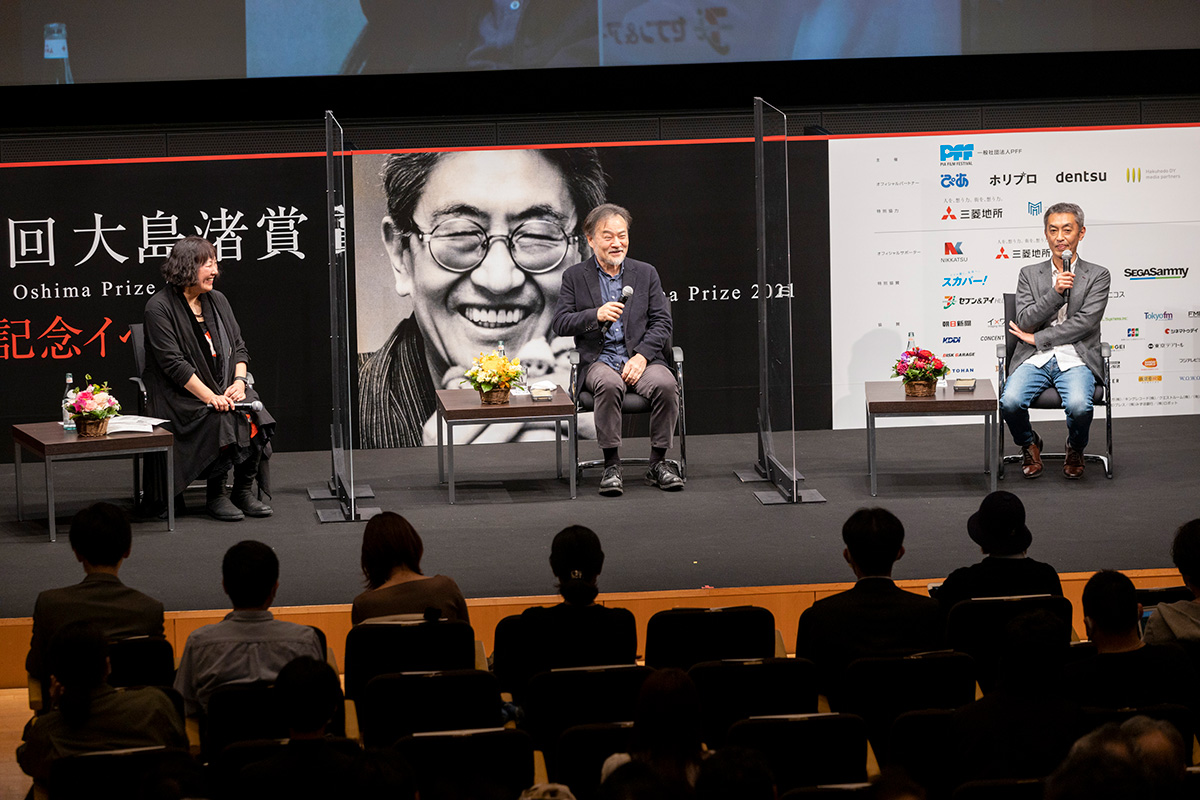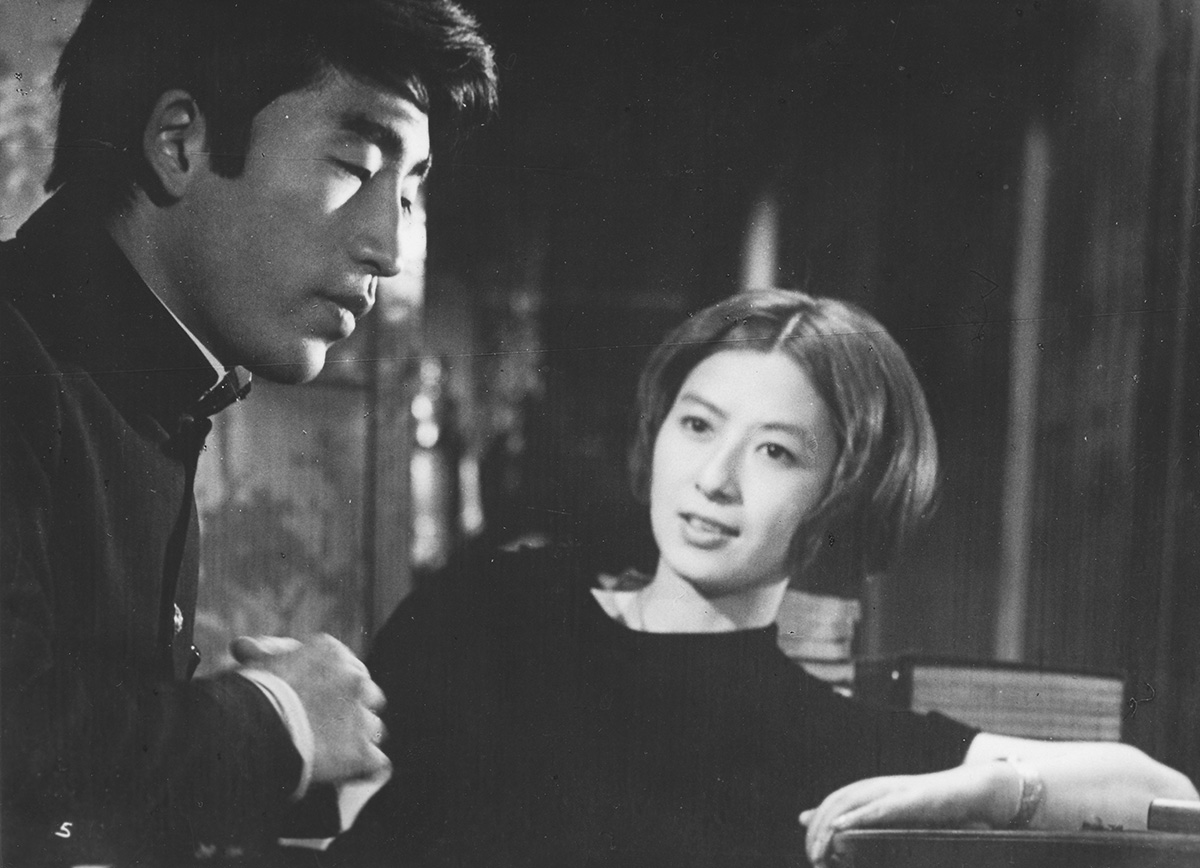The Winner
The Jury’s Comments
President of the Jury
Sakamoto Ryuichi
If Oshima Nagisa were to become a symbol of prestige through a prize named after him, then that would be something he would have abhorred. That is why pandering to him is unacceptable. Only those who provoke, criticize, and transcend him are most deserving of this prize. We long to encounter such films.
Kurosawa Kiyoshi
There are too many films that go, "A lot happened, but all's well that ends well." If a lot really happened to someone, they would be profoundly, irreparably wounded, and society would swiftly attempt to ostracize them as something that should not exist. If a crack forms momentarily between someone and society, that must never be backtracked. The wedge that you modestly drive in is surprisingly powerful.
There's no need to make everything coherent in an "all's well" way. "It's just a movie," people might say. But what are movies? The ones people vaguely imagine aren't the only kinds out there. Find a sharp, knife-like wedge from the utmost limits of expression and divide people and society forever. It's utterly delusive to think that these two coexist beautifully.
We're looking for young filmmakers who take on moviemaking in this fashion. I believe that that is the path Oshima Nagisa forged, and it must never be closed.
Araki Keiko
Mr. Sakamoto, Mr. Kurosawa and I discussed the rising filmmakers recommended by film curators and journalists from within Japan and abroad. As the two giants articulated their expectations for films and filmmakers and the possibilities and joy of cinema, the thrilling time, brimming with love for cinema and Oshima the filmmaker, went by quickly.
Coming-of-age films, films for children, films about romance, about wars, period dramas, experimental films and documentaries. While Oshima's filmography is surprisingly diverse and shows how he never ceased to try something new, he was the kind of person who could state flatly that "movies are melodrama" after he mastered the craft of creating them. He was a person who worked outside of Japan when doing so was rare, and also found entertainment value in television. His multifaceted endeavors make it difficult to fathom him, but the art of filmmaking was at his core.
The deliberation for the second Oshima Prize became a long, passionate discussion about cinema itself, leading to this bold decision.
Talk & Screening
| CEREMONY |
Date: Saturday, March 20, 2021 Place: Marunouchi Hall, Tokyo Speakers: Oshima Arata (documentary filmmaker), Kurosawa Kiyoshi and Araki Keiko (The jury members) Film: “Sing a Song of Sex” (1967) Directed and written by Oshima Nagisa Cast: Araki Ichiro, Tajima Kazuko, Kushida Kazuyoshi, Miyamoto Nobuko, Yoshida Hideko, Koyama Akiko, Itami Juzo |
|
|---|---|---|
Talk
During the talk session, filmmaker Kurosawa Kiyoshi and PFF director Araki Keiko, who served as jurors, appeared onstage to share some of the behind-the-scenes discussions that took place and explained why they decided to not award the prize this year.
In the latter half of the session, documentar filmmaker Oshima Arata, Oshima Nagisa’s son, appeared as special guest and shared some memories of what the iconic filmmaker was like as a father. The commemorative screening that followed featured Sing a Song of Sex from 1967, the film that both Kurosawa and jury president Sakamoto Ryuichi praise as being one of Oshima’s best.

Screening

©1967 Shochiku
“Sing a Song of Sex”
Directed and written by Oshima Nagisa
“Sing a Song of Sex” depicts the actions of some high school boys who come to Tokyo for their university entrance exams. There, they discover bawdy drinking songs called “shunka,” which they sing throughout the night in opposition to the military songs, revolutionary songs, and anti-war folk songs being sung around the city, reflecting the chaotic times they live in. Their repressed energy runs out of control in this unique film that Oshima filmed improvisationally.
